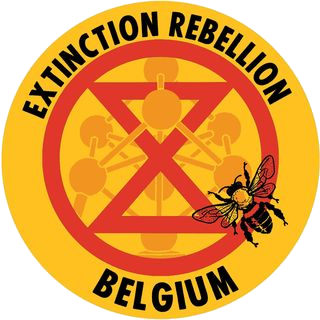Les champs auteur(e)s & mots-clés sont cliquables. Pour revenir à la page, utilisez le bouton refresh ci-dessous.
filtre:
ecology
21 mars 2025
A Bruxelles, courant des années 2000, les agendas 21 ont progressivement été adoptés à l’échelle communale à Bruxelles. Ils visaient à produire des politiques environnementales s’appuyant sur les trois piliers de développement durable (environnement, social, économique). S’ils ont permis des avancées en matière de durabilité des politiques publiques, ils étaient parfois critiqués sur le terrain en raison de leur lourdeur. Face à la réalité du changement climatique, et comme imposé par le règlement européen sur la gouvernance (2018/1999), la Belgique doit élaborer tous les 10 ans un plan national intégré énergie et climat. Les PAC détaillent les stratégies mises en œuvre à l’échelle communale pour atteindre les objectifs fixés par les plans régionaux, fédéraux et européens d’ici 2030.
18 octobre 2024
Hi, my name is Ghislain Vieilledent. I am an ecologist at Cirad, a French research center working with developing countries to tackle environmental and development issues. I am a member of the UMR AMAP joint research unit based in Montpellier (South of France). I have a background in biology and mathematics. My research focuses mainly on tropical forests 🌿🌳🌴. More particularly, I try to understand better the role of tropical forests in the global carbon cycle ♻ and the impact of climate change ⛅🌡and land-use change 🚜🔥 on tropical forest biodiversity
15 février 2024
Le débat sur les nouveaux OGM est biaisé par les lobbies qui défendent toute une série d’intérêts économiques. A la faveur de sa présidence européenne, la Belgique doit se positionner dans ce dossier en facilitant l’élaboration d’une politique européenne qui donne la priorité à l’équité, à l’autonomie des agriculteur.e.s, à la santé publique et à l’environnement.
23 novembre 2023
After 50 years, there is still an ongoing debate about the Limits to Growth (LtG) study. This paper recalibrates the 2005 World3-03 model. The input parameters are changed to better match empirical data on world development. An iterative method is used to compute and optimize different parameter sets. This improved parameter set results in a World3 simulation that shows the same overshoot and collapse mode in the coming decade as the original business as usual scenario of the LtG standard run. The main effect of the recalibration update is to raise the peaks of most variables and move them a few years into the future. The parameters with the largest relative changes are those related to industrial capital lifetime, pollution transmission delay, and urban-industrial land development time.
08 août 2023
Homo sapiens has evolved to reproduce exponentially, expand geographically, and consume all available resources. For most of humanity’s evolutionary history, such expansionist tendencies have been countered by negative feedback. However, the scientific revolution and the use of fossil fuels reduced many forms of negative feedback, enabling us to realize our full potential for exponential growth. This natural capacity is being reinforced by growth-oriented neoliberal economics—nurture complements nature. Problem: the human enterprise is a ‘dissipative structure’ and sub-system of the ecosphere—it can grow and maintain itself only by consuming and dissipating available energy and resources extracted from its host system, the ecosphere, and discharging waste back into its host. The population increase from one to eight billion, and >100-fold expansion of real GWP in just two centuries on a finite planet, has thus propelled modern techno-industrial society into a state of advanced overshoot. We are consuming and
05 juillet 2023
Il est possible de nourrir la planète de manière durable, The House of Agroecology en est persuadée. Reste à convaincre les agriculteurs, l’agro-industrie et les consommateurs. La tâche est immense, mais Emilie de Morteuil, cofondatrice de cette nouvelle Maison, est déterminée.
20 février 2023
This website introduces my research in behavioural ecology, focussing on the evolution of mammalian societies and mating systems
17 juin 2022
Gedurende het grootste deel van de menselijke geschiedenis werd de natuur als heilig beschouwd en geloofde men dat God of de goden in de natuur alomtegenwoordig waren. Dat gold voor bijna alle culturen en religieuze tradities ter wereld. Toen de westerse mens in de zeventiende eeuw God en de natuur van elkaar scheidde, was dat méér dan een breuk met duizenden jaren van verworven wijsheid en ervaring: we zagen er de legitimatie in om onze omgeving te plunderen en onszelf op een destructieve manier boven de natuur te plaatsen.
04 juin 2022
Human activity is putting the Earth on a trajectory towards environmental collapse. The SDGs were adopted in2015 to reconcile human activity with planetary boundaries. So far, the SDGs have not lived up to their promise in European Union member states. Most EU countries have seen socioeconomic development alongside environmental degradation. Progress towards environmental sustainability only occurs in countries with slow or negative socioeconomic trends.
22 mai 2022
The IPBES #PandemicsReport is one of the most scientifically robust examinations of the evidence and knowledge about links between pandemic risk and nature since the COVID-19 pandemic began - with 22 of the world's leading experts from fields as diverse as epidemiology, zoology, public health, disease ecology, comparative pathology, veterinary medicine, pharmacology, wildlife health, mathematical modelling, economics, law, and public policy as authors of the report. The expertise of the 22 authors was further augmented by contributions and knowledge resources from the Convention on Biological Diversity, the Intergovernmental Panel on Climate Change, the Convention on International Trade in Endangered Species, the United Nations Convention to Combat Desertification, and the World Health Organization - as well as a peer review process.
22 juillet 2021
In the archive of the UK Centre for Ecology & Hydrology there is a typed note from the 1960s that planted the seed of an idea.
12 mai 2021
abs_empty
28 avril 2021
abs_empty
31 mars 2021
Le Centre d’écologie urbaine est une asbl qui vise à augmenter la résilience de Bruxelles en dyna- misant les innovations sociales qui s’y déploient. Elle fonctionne comme une organisation-pont en mettant en place et facilitant des partenariats complexes avec une diversité d’acteurs pour activer de nombreux projets transformatifs à Bruxelles. Le Centre d’écologie urbaine est également actif en matière d’éducation populaire. Notre expertise est à trouver dans les questions portant sur la transition de systèmes complexes, la valorisation des matières organiques, les arbres urbains et les sols.
25 juin 2018
Washington – Une étude publiée récemment dans la revue « Science » révèle que l’industrie pétrolière et gazière américaine émet 13 millions de tonnes métriques de méthane par an, soit près de 60% de plus que ce qui est actuellement estimé par l’Agence de protection de l’environnement des Etats-Unis (EPA).
26 mai 2018
Le Centre d’écologie urbaine est une asbl qui vise à augmenter la résilience de Bruxelles en dynamisant les innovations sociales qui s’y déploient. Elle fonctionne comme une organisation-pont en mettant en place et facilitant des partenariats complexes avec une diversité d’acteurs pour activer de nombreux projets transformatifs à Bruxelles. Le Centre d’écologie urbaine est également actif en matière d’éducation populaire. Notre expertise est à trouver dans les questions portant sur la transition de systèmes complexes, la valorisation des matières organiques, les arbres urbains et les sols.
27 juin 2017
In the early 1970s, ecologist Barry Commoner wrote The Closing Circle, in which he discussed the rapid growth of industry and technology and their persistent effect on all forms of life. He suggested that we can reduce the negative effects by sensitizing, informing and educating ourselves about our connection to the natural world. Commoner summarized the basics of ecology into what he termed “laws of ecology.” Others have also used this idea to develop simple statements that help us understand and remember our connections to nature. Here are five laws of ecology:



